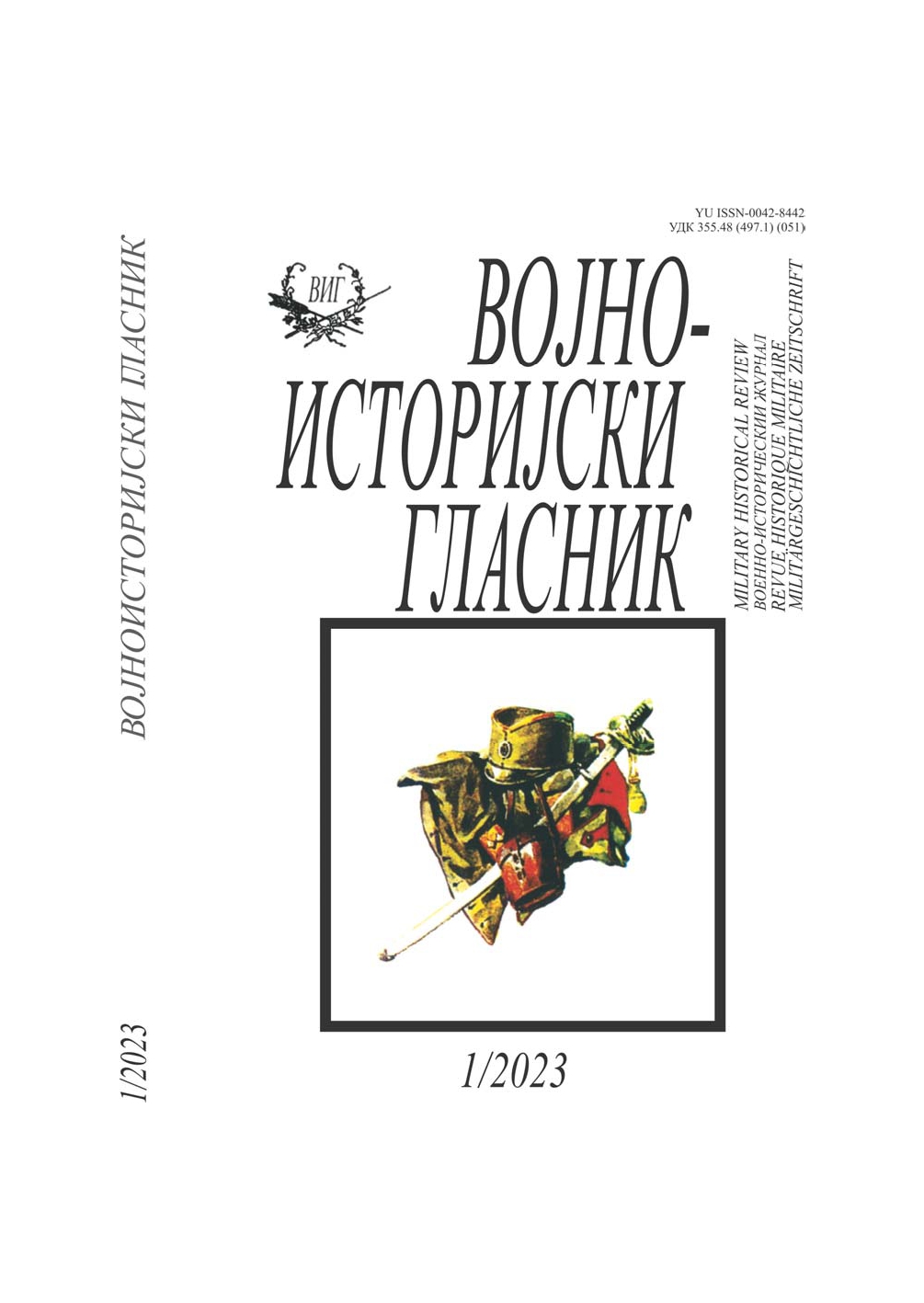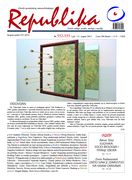

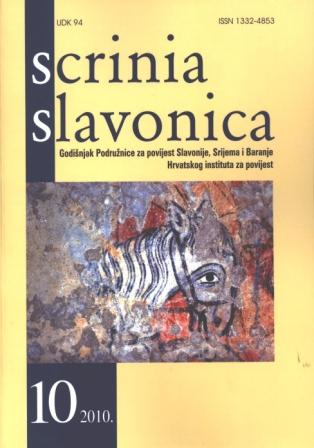
Keywords: Jasenovac - comcentration camp; number of victims; World War II
Uz polemiku o “indiferenciji Crkve prema jasenovačkim žrtvama” (sitan doprinos velikoj temi)
More...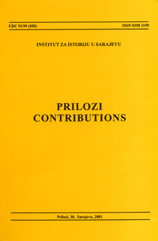
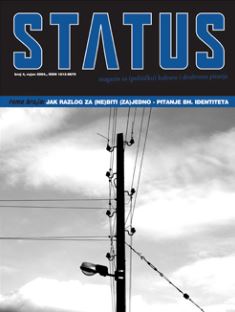
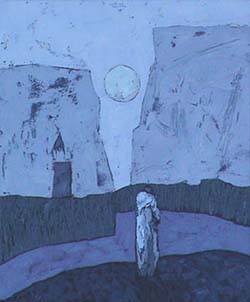
Keywords: reconciliation; chetnics; partisans;
Reconciliation of chetnics and partisans in practice.
More...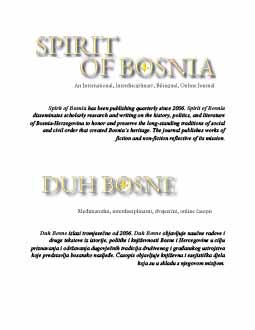
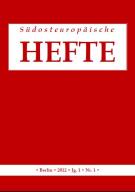
Keywords: Erinnerung; Identitätsbildung; Serbien; Jugoslawien; Zweiter Weltkrieg; Antifaschismus; Widerstand; World War II; remembrance; Serbia; anti-fascism; Yugoslavia
More...
Keywords: Monuments of the People’s Liberation Struggle; Shared Heritage; Former Yugoslavia; Internet; User-generated Content
This article revisits Yugoslav heritage through the example of the monumental network dedicated to the People’s Liberation Struggle (NOB), now interpreted through the lenses of contemporary heritage management practice. The monumental network of the NOB was created as a part of official identity management strategy of the state, and is unquestionably a shared heritage of the former Yugoslav region. The contemporary heritage-interpretation and management practices within the region tend to provide them with a strong national prefix, commonly disregarding their initial shared nature, and contribute to the processes of contemporary national identification. The efficient managing of the shared properties of heritage in question poses a substantial practical challenge and a burning issue in need of thorough investigation. For this purpose, this critical intervention offers one possible approach for overcoming the current issues in heritage management and interpretation practices of these memorial sites. The article analyses contemporary heritage-focused approaches which are based on performative and internet-based tools, and gives a special focus to the benefits of implementing user-generated content approaches.
More...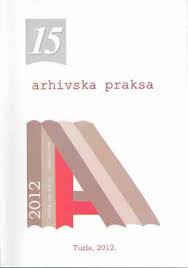
Keywords: socio-political organization; the Socialist Federal Republic of Yugoslavia; the League of Communists of Yugoslavia; the Socialist Workers Union of People of Yugoslavia;
Archival material, resulting from the work of socio-political organizations in the former Yugoslavia, according to many characteristics presents a unique fund that is now stored in the archives, founded after the collapse of the state, partly is kept by a tutor and partly is destroyed. Taking into consideration the characteristics of social and political system of Tito’s Yugoslavia, the role of Yugoslav League of Communists in it, the concept of non-alignment in foreign policy, tells us about the importance of the archival material, which are remain as a segment of the system. The states established from the disintegration of the Socialist Federative Republic of Yugoslavia defined their legal systems. As a part of the legal system is the issue of protection of the archives. It is preferable and useful to establish unique attitudes towards protecting the materials of the former Yugoslavia, especially those resulting from the work of the socio-political organizations. This is mainly because their work and the documentation show the character of the time and the territory. The Archives of Yugoslavia, which keeps records of federal organs, has a primary role in this mission. The regional archives that is those of regional and local importance, keep data, which complement the general picture. Conferences of archivists, with the theme of protection of this type of documentation will contribute to raise awareness about, to some extent, a unique fund of documents stored in the archives of different countries nowadays.
More...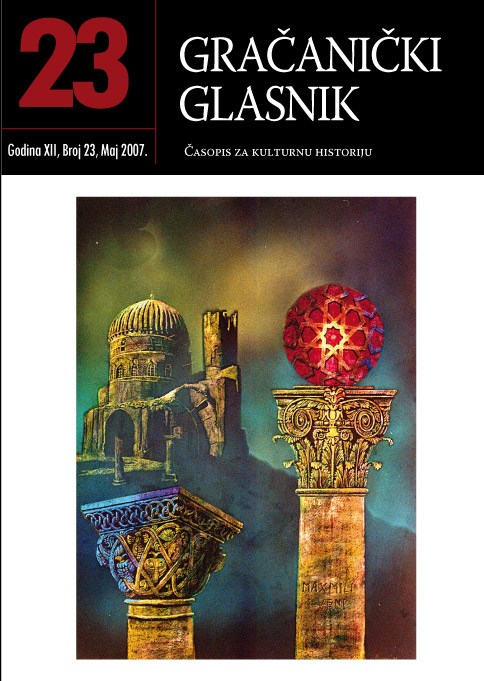
Keywords: Alija Gazibegović; Tito's youth; Culture; Follower of Josip Broz Tito;
Pripadao je generaciji Titovih omladinaca i nepokolebljivih boraca za neko novo, bolje, naprednije, ljudskije življenje na ovim prostorima, generaciji zanesenjaka i sanjara, koji su doživjeli da dosanjaju svoj san o slobodi i pravdi, koji su doživjeli da vide i osjete plodove svoje borbe i svog mukotrpnog rada i koji su, nažalost, doživjeli rušenje tih svojih ideala na najgori mogući način. Iako je bio svjestan da se to, nažalost nije moglo zaustaviti, Alija Gazibegović je, kao i mnogi drugi istinski sljedbenici Josipa Broza, do kraja ostao u njegovom stroju.
More...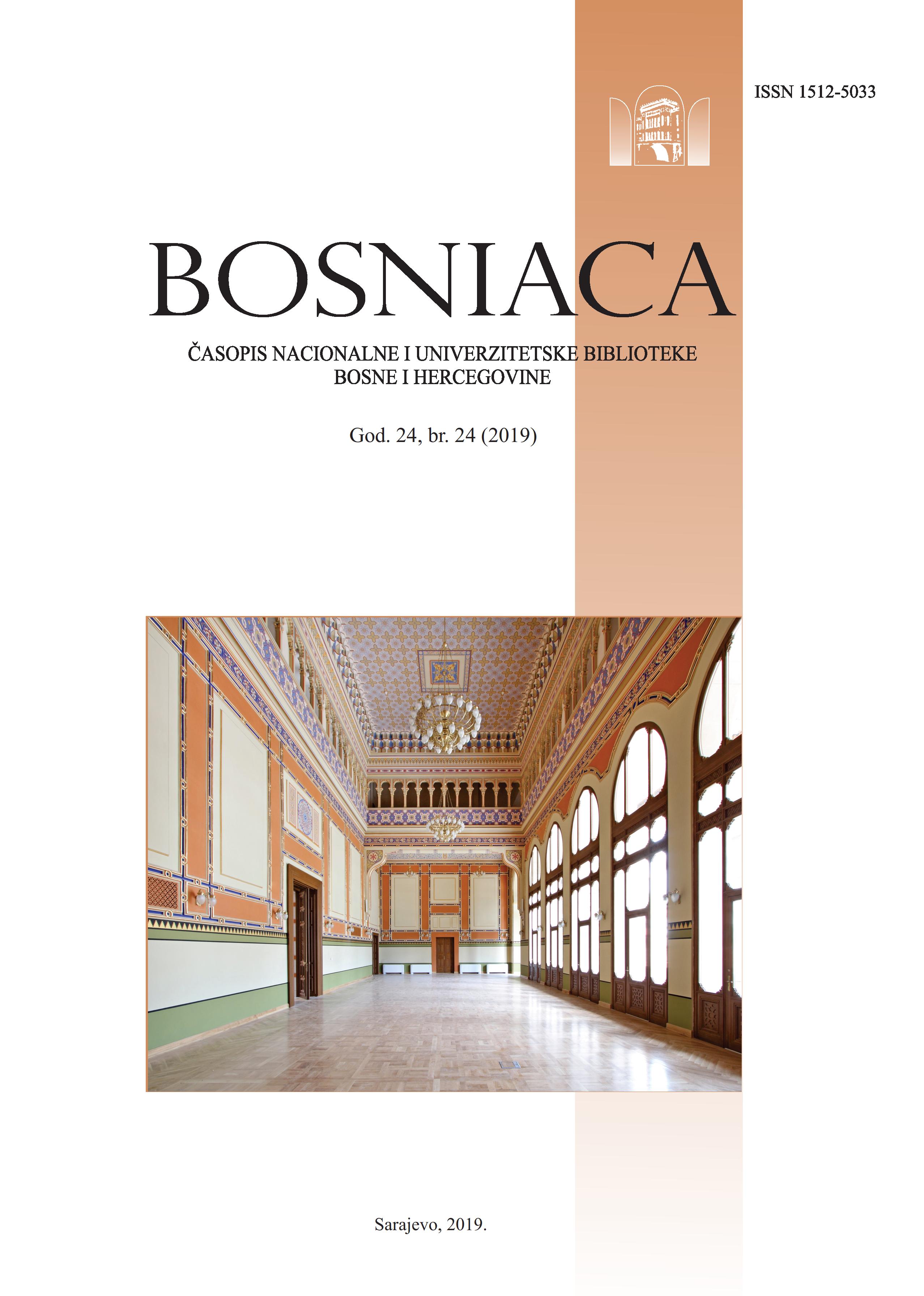
Review of: Ljubica Đorđević: life and creativity with bibliography, Vera Petrović, Belgrade, 2019, p. 187.
More...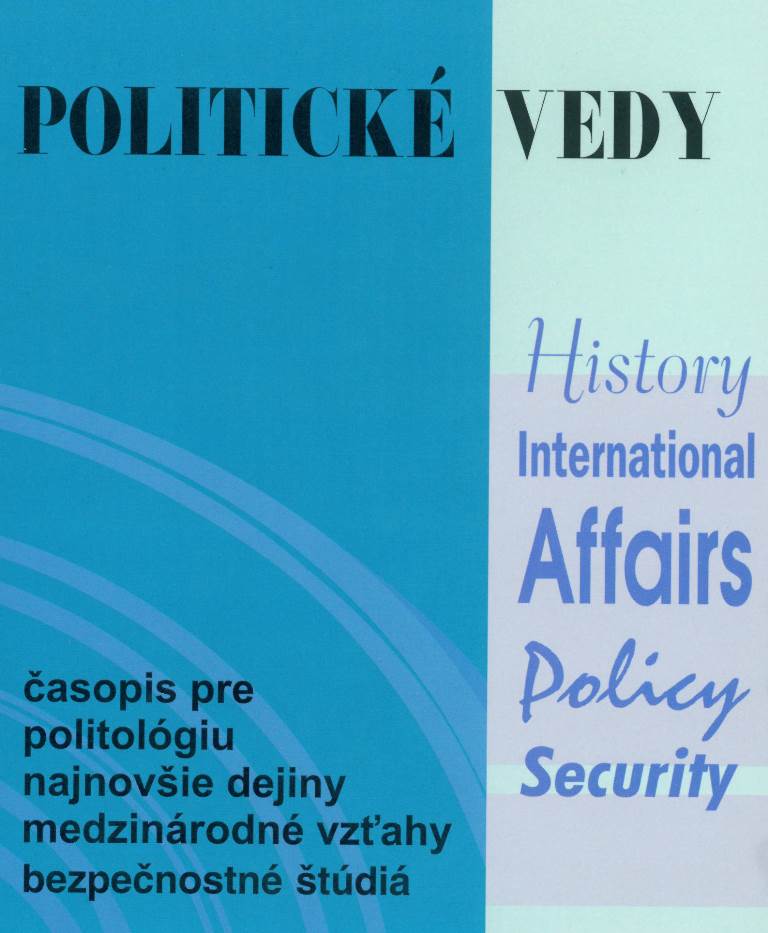
Keywords: Bosnia;war veterans;inter-ethnic cooperation;post-conflict reconstruction;
In this article, the attention is paid to the Bosnian war veterans´ organisations. In the post-Dayton period, veterans’ associations could be characterized as non-egalitarian structures with strong ethnic ascription reproducing ethnic cleavages and with wide patron-client bonds to the highest level of politics enjoying preferential positions in socio-political and economic life. Today, the majority of veterans´ organisations can be characterized as civic oriented NGOs rather inclusive with decreasing importance of the ethnicity as the defining principle, limited preferential political treatment, and with the potential to mobilize across ethnic lines and building cross-ethnic contacts and relations. I searched for mechanisms and processes that produced alternations in the veterans’ organisations role and behaviour. The tracing of the political, societal and economic context in and outside of Bosnia and in the population of veterans’ organisations discovered the existence of twelve mechanisms which combination and interplay “produced” the change in veterans’ organisation's role and behaviour.
More...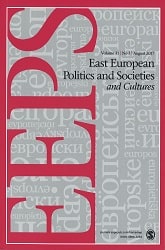
Keywords: Bosnia-Herzegovina; silence; Muslims; monuments; mass killing;
Newly available documentation from the State Archive of Bosnia-Herzegovina indicates that the majority of sites where Muslim civilians were killed during the Second World War remained unmarked as late as the mid-1980s. The existing scholarship, most of which argues that Yugoslavia’s communist regime sought to “de-ethnicize” the remembrance of all of the interethnic violence of the war, has failed to notice and explain this apparent bias against Muslim civilian war victims. This article seeks to answer the question of why so many sites in Bosnia-Herzegovina where Muslim civilians were killed remained unmarked after the war. It does so through the reconstruction and analysis of the wartime and postwar history of Kulen Vakuf, a small town located in northwestern Bosnia. The analysis of the dynamics of mass killing in the region reveals that the communist-led Partisan movement absorbed large numbers of Serbian insurgents who had murdered Muslims earlier in the war. The transformation of the perpetrators of the massacres into Partisans created a postwar context in which the authorities, to avoid implicating insurgents-turned-Partisans as war criminals, and the Muslim survivors, out of fear of retribution and a desire to move on, agreed to stay silent about the killings. The end result was the absence of monuments for the victims.
More...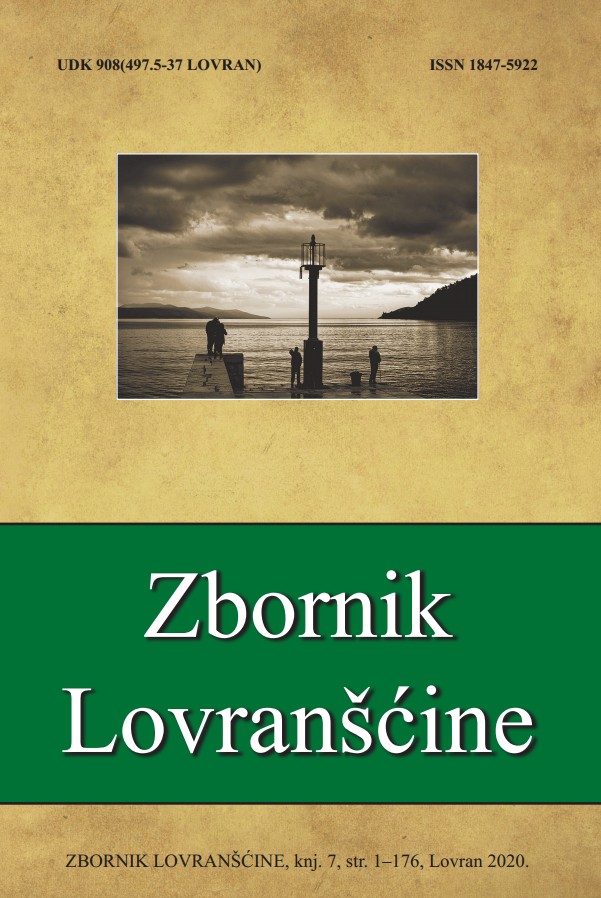
Keywords: Book-Review;
Review of: Vana Gović, Kako Lipa pamti: 75 godina sjećanja na stradanje, Pomorski i povijesni muzej Hrvatskog primorja, Rijeka 2019.
More...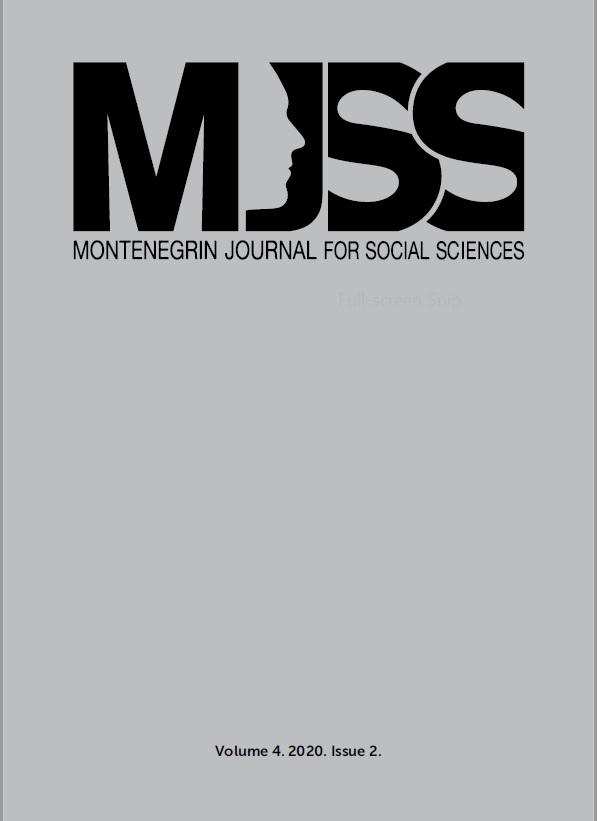
Keywords: NOB, Pljevlja
Prikaz knjige: Znamenja slobode − spomenici NOR-a u pljevaljskom kraju, Savez udruženja boraca NOR-a i antifašista Crne Gore, Udruženje boraca NOR-a i antifašista-Pljevlja, Pljevlja 2020. godine, 109. str.
More...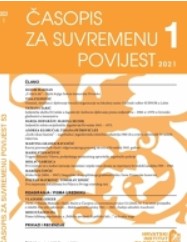
Keywords: Federation of Veterans’ Associations of the People’s Liberation War of Yugoslavia (SUBNOR); Labin; socio-political organisation; social protection; culture of memory; Yugoslavia;
The Veterans’ Federation (later: Federation of Veterans’ Associations) of the People’s Liberation War of Yugoslavia was founded in 1947 as a socio-political organisation of People’s Liberation War veterans and active participants of the People’s Liberation Movement, with committees formed according to the territorial principle—from the Federal, through republican and provincial, to municipal and local committees. It was characterised by a well-developed system of operation focused on the systematisation of veterans’ care and all forms of material, social, and health care for members as well as preserving and evoking public memory of the war. Combativeness and vigilance became high priorities of its socio-political work, especially from the mid-1960s and early 1970s, when members of the Veterans’ Federation became politicised in the wake of important socio-political changes. Simultaneous reorganisation-related changes and the activation of new municipal committees contributed to the intensification of the work of local veterans’ organisations, which manifested as the establishment of some new commissions and, in the following years, an influx of new members and a closer cooperation with other social and socio-political factors in the municipalities. This paper first describes the founding of the Veterans’ Federation of Yugoslavia, its structure and most important fields of activity, and then the formation, structure, and activities of the Municipal Committee of the Federation of Veterans’ Associations in Labin, which, together with other municipal veterans’ committees in the Socialist Republic of Croatia, represented the focus of veterans’ activities regarding quality of life improvements of its members and preserving the memory of the People’s Liberation War in the local community. This paper examines the most important changes in the Federation of Veterans’ Associations’ mode of operation, describes the local strategies of ideological work and work on creating a culture of memory related to the wartime and revolutionary past, and the ways in which the veterans’ organisation resolved the material and social-health issues of its members, and therefore influenced their quality of life. The research was based on materials of the Republican Committee of the Federation of Veterans’ Associations of the Socialist Republic of Croatia and the documentation of the Municipal Committee of the Federation of Veterans’ Associations in Labin, which has been mostly preserved for the late socialist period.
More...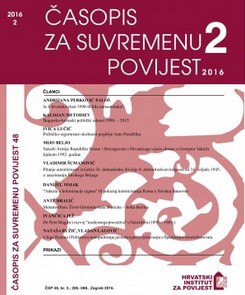
Keywords: Population losses; Croatia; Second World War; 1950s; Victims;
The 1950 commission investigating the number of victims of the National Struggle for Liberation established numbers which confirmed those recorded earlier by the Commission for war damages in 1946 and those recorded later by the Commission for investigating victims of the Second World War in 1964. However, up until now, the results made by the 1950 Commission have been unjustifiably neglected by researchers. They were never officially published, but were kept secret and the materials were unavailable to researchers at the Archive of Yugoslavia in Belgrade. The results of the 1946 Commission were unacceptable to authorities because the number of victims registered for the "anti-fascists" were smaller by half than the figures established for the deaths of "enemies of the people." The 1950 Commission investigated only the number of losses suffered on the side of the Movement for National Liberation. For Croatia, 159 193 deaths were counted. The list of victims was tabulated with respect to place, manner, and year of death, nationality, gender, occupation, and age.
More...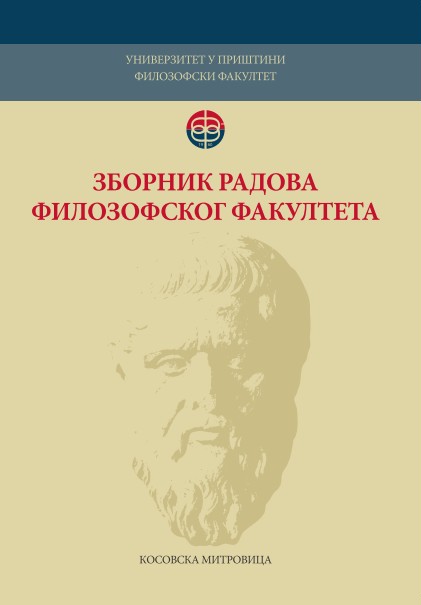
Keywords: Fighters; society; PLM; PLW; FPRY; ideology; sculpture; “the culture of rememberance”.
The paper deals with the attitude of the newly formed state government in Yugoslavia, after the Second World War, towards war veterans, in the period between the enactment of the first and second constitutions of the communist Yugoslavia, the period of the Federal People's Republic of Yugoslavia (1946-1963). On the example of social protection of the fighters and their symbolic representation, especially through sculpture as the most suggestive and the most communicative medium for transmitting symbolic messages, the aim of the paper is to establish what the social position of the war veterans was in that historical period, and also to point to the important knowledge that the social protection of veterans, war invalids, as well as the families of the fallen soldiers was at an enviable level and that the new government immediately saw the importance of the symbolic representation of valuable ideals through the medium of sculpture also. In the newly formed Federal People's Republic of Yugoslavia (FPRY, 1945-1963), nurturing the revolutionary tradition and the legacy of the People's Liberation War were priority social tasks.
More...Keywords: Croatian Politics of Memory; Second World War; Democratization;
With growing interest in the politics of memory of the Second World War (WWII) in Central and Eastern European countries, scholars of Croatian politics and contemporary history have explored the historical revisionism that flourished under President Franjo Tuđman in the 1990s, changes in the official narrative after 2000, and the resurgence of nationalism after Croatia’s entrance to the EU. Still, little attention has been paid to a dispute over the idea of reconciliation in the early 1990s. This article focuses on this politicization of WWII memory in the early period of democratization. In doing so, I address the discourse of “returning to Europe” and the calls for reconciliation made by a broad range of political actors in the late 1980s and early 1990s. Upon the establishment of the Independent State of Croatia in April 1941 with the help of Nazi Germany and Fascist Italy, the far-right Croatian nationalist organization Ustaša ruled this puppet state and engaged in the mass killing of Serbs, Jews, and Roma during the war. Yugoslavia was liberated by the Yugoslav Partisans under the command of communists in 1945, who also committed atrocities during the war and in its immediate aftermath. The official narrative of WWII in Socialist Yugoslavia juxtaposed the heroic Partisans against the fascist and collaborationist enemies. During the socialist period, the WWII veterans’ union SUBNOR played a key role in shaping the official narrative. In the 1980s, the official narrative gradually lost its legitimacy and fierce debates over WWII ensued. New political parties that emerged in Croatia from 1989 to 1990 shared a consensus in favor of Croatian integration into Europe, although the strategies of achieving this goal differed significantly among them. While nationalist parties claimed Croatia as an essential part of Western Europe and devoted themselves to building the Croatian nation-state, liberal parties and the reformed communists insisted on making a democratic state embracing such Western values as liberalism and human rights. After the victory of the nationalist party, the Croatian Democratic Union (hereafter “HDZ”), at the election in the spring of 1990, memory politics took on a nationalist proclivity. The opposition parties often chastised the HDZ’s politics of memory, which was epitomized by their protests against the renaming of the “Square of the Victims of Fascism” in Zagreb as the “Square of Croatian Great Men.” This article identifies three groups involved in the disputes over the narrative of WWII in the late 1980s and early 1990s. The first group was those adhering to the official communist story enshrining the heroic Partisans and stressing “brotherhood and unity” among the nations in Yugoslavia. SUBNOR continued to promote this ideal in the late 1980s and early 1990s, which did not help them keep their prestige. A split in the WWII veterans’ union in Croatia and the subsequent controversy between SUBNOR and the newly formed veterans’ association UHRV also indicate that the legitimacy of the communist narrative withered in the early 1990s. The second group was those nationalists promoting “national reconciliation” among the Croats both at home and abroad. This discourse of “national reconciliation” eventually dominated the official policy of memory in the 1990s. Its proponents attempted to solve the ideological conflict between the Partisans and Ustaša by arguing that both forces had struggled for a common goal of building a Croatian state. This argument could lead to the relativization and rehabilitation of the Independent State of Croatia and Ustaša. The third group was the reformed communists calling for “civil reconciliation” with a view toward encompassing all Croatian citizens regardless of their ethnicity. In July 1990 after the rise of controversy over the exhumation of those inhumed in the Jazovka Pit, the reformed communist party, League of Communists of Croatia–Party of Democratic Change, announced a draft of an appeal for civil reconciliation, but ultimately failed to implement it. The crux of “civil reconciliation” was to condemn both fascists and communists for their crimes, while endorsing anti-fascism as the foundation of modern and democratic Europe. Liberal politicians and intellectuals also denounced nationalists’ policy of memory as escalating the oblivion of anti-fascism and the rehabilitation of Ustaša. Yet the liberals did not come to a consensus on reconciliation, either: while some at least temporarily accepted the idea of national reconciliation, others were afraid of equating victims of fascism with those of communism without taking the relevant historical contexts into account. Thus, these three groups used the notion of anti-fascism and the discourse of “return to Europe” in distinct manners. The nationalists reinterpreted anti-fascism in Croatia as a movement for Croatian national independence and attached it to “national reconciliation.” Tuđman justified the act of “national reconciliation” by invoking precedents of national reconciliation elsewhere in Europe. In contrast, SUBNOR, the reformed communists, and the liberals regarded anti-fascism as making Croatia a modern and democratic European country. Meanwhile, most of the Croatian Serbs, the largest ethnic minority in Croatia, did not comply with the calls for reconciliation in Croatia. While the separatist Serbs claimed that the policy of the HDZ government was similar to that of the Independent State of Croatia, more moderate Serbs accused the Croats of allowing the rehabilitation of fascism. Although the appeal for civil reconciliation should have embraced the Croatian Serbs, they dismissed it as equating the victims of fascism with those of communism. The Croats’ aspirations to commemorate all victims deterred the Croatian Serbs from supporting the calls for “national reconciliation” and for “civil reconciliation.”
More...